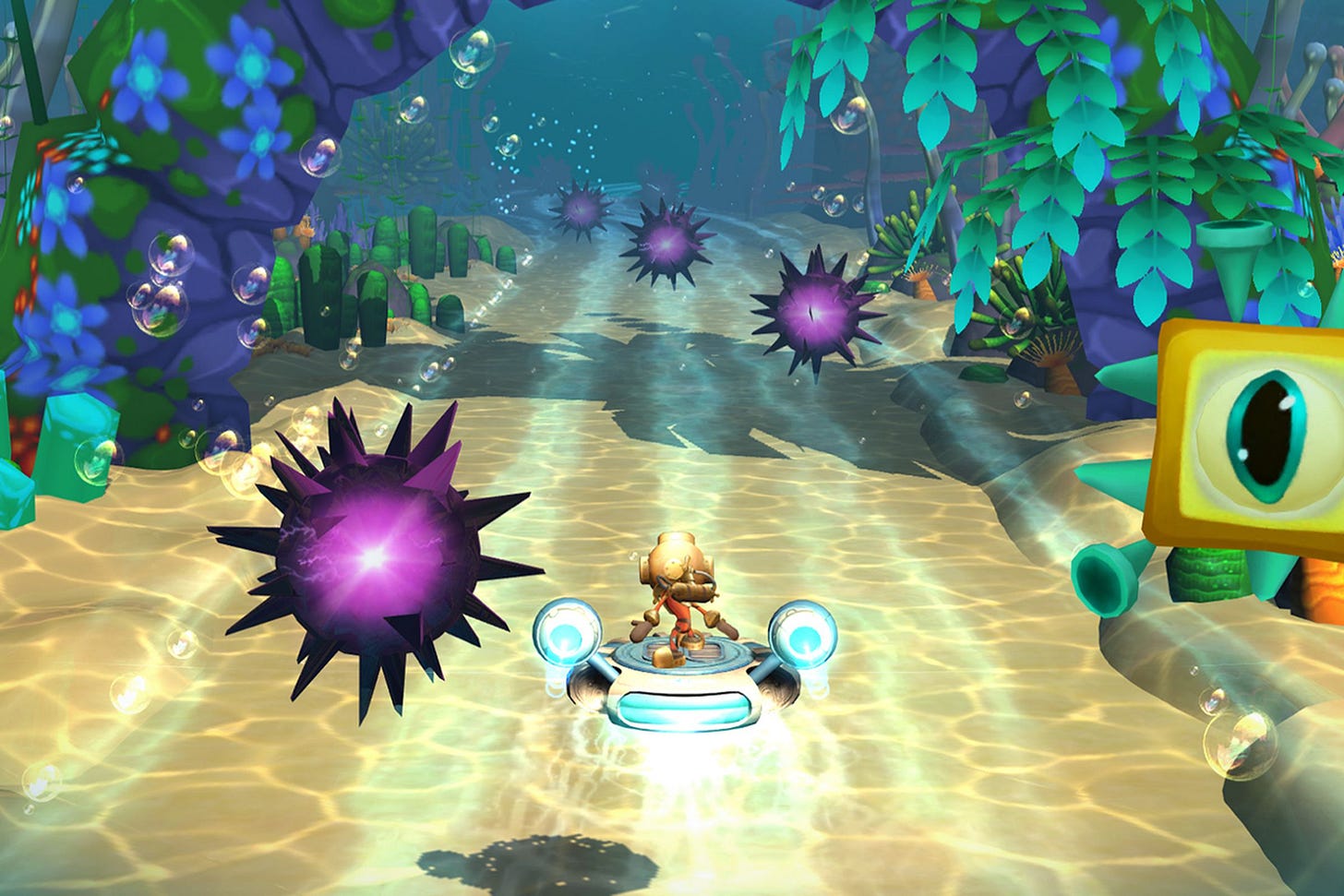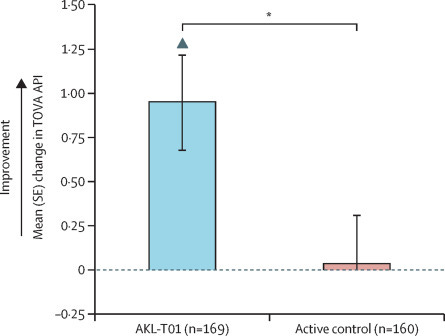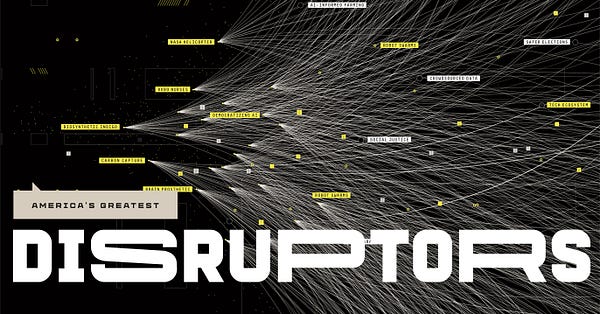Level 7: Prescribing Play
Using video games as medicine.
Welcome to The Gameful Scientist! This newsletter explores the intersection of scientific discovery and creativity. Enjoy!

In June 2020, the FDA approved EndeavorRx, a video game designed to help children aged 8 to 12 with ADHD. This decision marked the beginning of a new era in healthcare, where kids would explore alien worlds to save creatures from extinction instead of taking traditional medication. EndeavorRx is more than just a game; its vibrant graphics hide a unique mix of patented stimuli and algorithms aimed at boosting the brain's attention function.
In this article, we'll dive into the world of digital therapeutics, a fresh approach to healthcare that merges tech, pharma and healthcare delivery. We'll discuss the approval of EndeavorRx, the company behind the game, the trial that led to its approval, and the business of “prescribing play”. As digital therapeutics gain popularity, the future of medicine might just involve playing video games instead of popping pills.
Welcome to Level 7.
The Emergence of Digital Therapeutics
Digital therapeutics, a term coined by Sean Duffy, CEO of Omada Health, are transforming healthcare by combining tech-based treatments with traditional drug therapies. There’s a bit of a debate around the definition. Some people believe they should be seen as stand-alone treatments, like conventional drugs, with measurable outcomes and independent clinical trials. Others believe that a digital product combined with traditional drugs can also be classified in this category. I lean towards the latter, as there are plenty of examples where drugs have failed in clinical trials but work effectively as combination therapies, and they're still considered drugs. Either way, these therapies are transforming the industry by offering a wide range of prevention, management, and treatment options through software programs, video games, and simulations.
A16z's "16 Minutes on the News" podcast highlights some important points:
Pragmatic Trials and Real-life Data: Digital therapeutics have a low-risk nature, which allows them to be introduced to diverse groups of people. This helps gather real-life data on user engagement and treatment results, providing new insights into how effective these treatments can be.
Diagnosing and Treating: Digital therapeutics merge diagnostics and treatments. This may lead to innovative approaches where games evolve from being just diagnostic tools to also providing therapeutic treatments over time.
Value-based Pricing: Digital therapeutics could disrupt traditional drug pricing models. They can pave the way for first-of-their-kind treatments or “digital generic versions”, which could improve healthcare access for rural and underserved communities.
These advancements in digital therapeutics are reshaping the healthcare landscape, creating new opportunities and challenges for patients, healthcare providers, and the gaming industry.
EndeavourRx
In this article we’ll shine a spotlight on EndeavourRx. This video game invites players to become space cadets on a mission to rescue alien creatures from extinction across various planets. Each world features unique landscapes and tasks, creating a backdrop for a series of cognitive challenges. Players control their avatar on a hover platform by tilting their device, requiring focused attention as they dodge obstacles and pass through gates.

The game also tests conflict resolution and working memory skills. Players must capture specific aliens while resisting the urge to tap on incorrect ones. This task, combined with navigating through levels, challenges players to juggle multiple cognitive tasks aimed at the attention network.
EndeavourRx incorporates familiar gaming elements by rewarding players with in-game currency for completing levels and tasks. Players can use this currency to buy costumes, customize spaceships, and unlock more missions. This captivating gameplay disguises the cognitive training, making it an enjoyable and effective digital therapeutic tool. The game combines multiple cognitive tasks, such as sustained attention, conflict resolution, and working memory, to exercise the brain in a targeted way. The game also adapts to each player's performance, keeping it challenging and delivering a personalized experience.
Dr. Amiad Fredman, a doctor specializing in digital health and games for health, has a YouTube channel called Digital Doc Games. In one video, he plays EndeavorRx and shares his thoughts on digital therapeutics' potential. This attention from doctors underscores the growing acceptance of games as valid treatment options.
Play to Heal: EndeavorRx’s Clinical Trial
Cool gameplay, but does it actually work? The FDA approved the game based on a randomized, controlled, double-blind clinical trial called the STARS-ADHD study. This trial randomly assigned participants into groups, with neither the participants nor researchers knowing who received the game or a control treatment. The study involved 4 weeks of intervention, with kids playing the game for 25 minutes per day, five days a week.
The primary goal was to measure the change in attention and impulsivity using the Test of Variables of Attention (TOVA) after four weeks. The study found that EndeavourRx (called AKL-T01 in the trial) significantly improved attention in children with ADHD compared to those in the control group. The TOVA is a test that measures a person's ability to focus and control impulsive behavior, which are common challenges faced by individuals with ADHD.

The results are awesome and super encouraging, but the study also faced some challenges and limitations:
The game's impact on secondary outcomes, like parent and clinician evaluations of ADHD symptoms and daily functioning, didn't show significant differences compared to the control group.
The study's criteria required patients to have a specific attention score, which led to excluding many patients diagnosed with ADHD from the trial.
Participants couldn't take ADHD medication during the trial or have significant mental health issues, which could limit the study's relevance to a wider population.
The study tested a 28-day schedule with 25-minute daily sessions, so not sure if different schedules would yield better results.
By addressing these concerns, digital therapeutics like EndeavourRx can continue to gain credibility and acceptance in the healthcare community. Future trials should explore the long-term effects, appropriate dosage, and optimal treatment duration for this innovative intervention.
New data evaluating the effectiveness and safety of EndeavorRx in teens was released earlier this year, which will be used to request FDA label expansion in 2023.

Founder Stories
EndeavourRx was created by Akili Interactive Labs. As someone who’s worked as a venture capitalist (VC) at Fifty Years and had experience co-founding a biotech company, I can't emphasize enough how crucial the founding team is to a company's success. Technology and markets change, but a founding team takes an idea, shapes the culture, and ultimately leads the development of an impactful solution to a problem. The founders behind Akili are pretty awesome.


Akili Interactive's story began when co-founders Adam Gazzaley, Matt Omernick, and Eddie Martucci each tackled cognitive function issues from different perspectives. Gazzaley, a neurologist at UC San Francisco and head of Neuroscape, aimed to assess and improve cognition through digital delivery of multiple cognitive tasks. Omernick, an experienced gaming industry professional, was interested by the trend of gaming for good and its potential for cognitive enhancement. Martucci, a biologist and VC, became intrigued by the concept after discovering the research. The three founders combined their expertise to create Akili Interactive, focusing on digital solutions for cognitive improvement.
The Business of Prescribing Play
I'm editing this section while I’m waiting for the next talk at the Game Development Conference (GDC). I just finished listening to a talk by the veteran game designer, Noah Falstein. He's an Executive Advisor for Akili Interactive. His talk, "Acquiring Game Design Skills Beyond Entertainment," explored the concept of "transformational games" – games that aim to transform players through education and personal growth. In The Gameful Scientist, we often highlight discovery games designed not only for entertainment but also to solve real problems. They can fall into this category as well.
Falstein's belief that the industry is on the verge of an explosion is both exciting and validating. He says that:
Healthcare is a trillion-dollar industry. If games can take one part of that, it's entirely possible that transformational games could become as large as the mobile industry is right now, in another 10 to 20 years.
The recent success of Akili Interactive, the company behind EndeavorRx, supports this idea. They've inked a $1 billion SPAC deal to take the company public, demonstrating the enormous potential of digital therapeutics in revolutionizing healthcare. Experts predict that the digital therapeutics (DTx) market will reach $7.8 billion in value by 2025, with video gaming being the industry's largest driver. Another company, DeepWell Digital Therapeutics, also plans to develop its own in-house games targeting mental health.
For game developers and founders looking to differentiate themselves, now is the time. By being different and finding your niche, you'll gain valuable expertise as the market grows.
's article "Differentiation. Or, why you should be a mutant" article emphasizes this idea – being different beats being better.Entering the digital therapeutics space presents both familiar and new challenges for game developers. They'll need to navigate interdisciplinary teams and jargon, apply VR and AR to enterprise solutions, and consider onboarding for research purposes. However, this also offers unique opportunities, like easy distribution for games that solve problems, less competition, and fostering collaboration among developers.
By exploring the digital therapeutics market and embracing its challenges and opportunities, game developers can find their niche, develop valuable startups that have a massive impact on the future of healthcare.
Conclusion
The FDA's approval of Akili Interactive's EndeavorRx marks a huge milestone in the world of digital therapeutics. This paves the way for similar treatments to become mainstream, with implications for value-based pricing, regulation, and real-world evidence collection.
We'll continue to track the progress of digital therapeutics as they redefine the landscape of modern medicine.
See you next week :)
Thanks for reading The Gameful Scientist!
Feel free to contact me here or chat with me on Twitter @ATrotmanGrant :)

